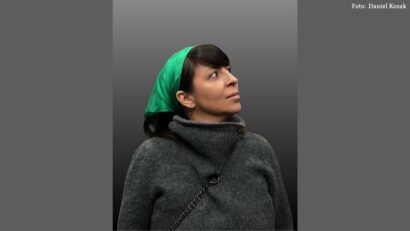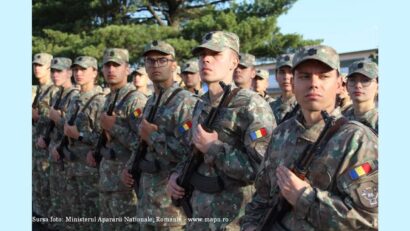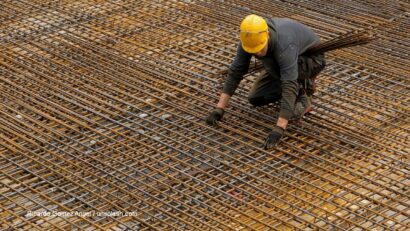Approaching Teenage Risk-Taking
Since 2013, the Romanian office of UNICEF has been focusing on teenagers, as their issues are viewed as largely overlooked by public and educational policies.

România Internațional, 23.09.2015, 13:17
Since 2013, the Romanian office of UNICEF
has been focusing on teenagers, a group whose problems and identity are viewed
as largely overlooked by public and educational policies. In their case, the
risk-taking behaviour is quite frequent. According to 2013 surveys, 42% of
teenagers have drunk alcohol at least once in their lives, 23% have smoked at
least one cigarette, 10% of all the 16-year olds have tried drugs at least
once, and one-quarter of the teens over 14 years of age have already had sex.
The social background as well as the psychological changes that prompt such
behaviour in teenagers were the subject matter of a separate survey initiated
by UNICEF. Sandie Blanchet, the representative of UNICEF in Romania, told us that, although the teenage brain
is capable of adult intellectual performances, self-control and instincts are
still immature. And parents and educators must take into account how the
teenage brain works. Here is Daniela Dumulescu, a psychologist with the
Babeş-Bolyai University:
Unlike adults,
teenagers don’t yet have the brain structures in charge with self-control fully
developed. This is why they are more impulsive, more willing to take risks,
more instinctive and less reasonable. Moreover, they are more vulnerable to
emotions and want everything to happen here and now. Hence their urge to
experiment. Grown-ups must take this propensity into account and try to guide
teens towards experimenting new things in a safe environment. Teenagers
understand they have a negative behaviour, but that part of their brains that
enables them to refrain from this behaviour is not yet developed. They perceive
it as being dangerous, but they are unable to hold back.
Besides their propensity for novel
experiences and thrill and adventure, teenagers are very much influenced by
their peer group. Within this mini community they develop their own so-called
norms and social beliefs about alcohol consumption, smoking, drug consumption
and sexuality. Fidelie Kalambay, a sociologist, explains:
Teenagers believe that all these risk-involving practices are unhealthy, are
not necessary and can affect the social image of an adolescent or of a person
in general. But, although most of them have this belief, they still make room
for some nuances. For instance, tasting alcohol is acceptable. Therefore they
make a difference between drinking and tasting. Moreover, given that smoking
and drinking alcohol are common habits in a society, adolescents consider them
accepted deviances. These are behaviors that they consider negative but that
can be tolerated. They affect your self-image but not to the extent that you
may be excluded from society.
This type of
relating to their peers or to society in general, but through the eyes of the
peer group, is also valid when it comes
to starting one’s sex life or taking drugs. Here is Fidelie Kalambay again:
I
talked to a number of teenagers and have found out that they have the
predominant empirical belief that most adolescents smoke, drink alcohol and
have started their sex life. Consequently, they said, if everybody is doing
that, then they have no reason not to do it. But, oftentimes, this supposition
is false. In reality smoking, alcohol and early sex life are less widespread
than my interviewees believed. Also I have identified something I had not
expected, namely another normative belief: they believe that very few of their
friends or rather none of them take drugs. We believe that one of the
explanations for this kind of belief is the criminalization of drug
consumption. Most teenagers won’t admit they have experienced taking drugs.
Another explanation we have come up with as a hypothesis is their low level of
knowledge about drugs.
To UNICEF, just as to many other similar organizations,
what is important is that society and institutions alike should understand the
teenagers’ psychological mechanism, because, starting from this understanding,
they should try and prevent dangerous behaviors. In this sense, UNICEF has been
implementing a new intervention model in five cities: Bucharest, Iasi,
Constanta, Bacau and Cluj. Their intervention actually consists in setting up,
alongside the local authorities, resource centers for teenagers in
disadvantaged areas. In these centers teenagers can benefit from psychological
counselling, interventions in crisis situations, educational counselling,
vocational and professional coaching and psychological and social assessment.
Furthermore, the website www.adolescenteen.ro
helps them through the information provided and through the online support
group created there.






























